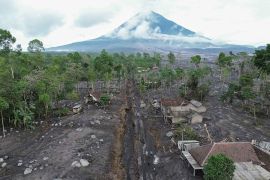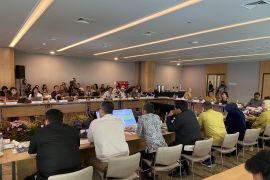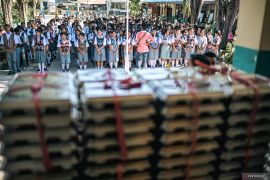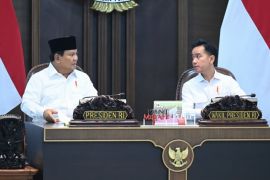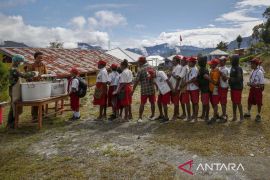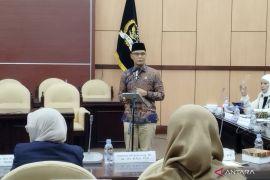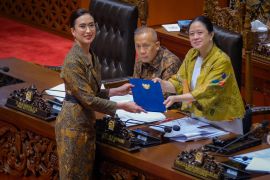Indonesia`s per capita milk consumption is even lower than that of Thailand, which reached 33.7 liters per annum, the Philippines` 17.8 liters and Vietnam`s 14.3 liters.Jakarta (ANTARA News) - Legislator of Commission X of the House of Representatives (DPR), Dwita Ria Gunadi wants to increase milk production and consumption because the per capita milk consumption in the country is still lower than other Asian countries.
"The per capita milk consumption in 2015, based on data from the Agriculture Ministry was only 12.1 liters per annum," Dwita Ria Gunadi said in a written statement here on Thursday.
The per capita consumption is still is still lower than the per capita consumption of India, which reached 48.62 liters per annum, Singapores 44.5 liters and Malaysias 36.2 liters.
Indonesias per capita milk consumption is even lower than that of Thailand, which reached 33.7 liters per annum, the Philippines 17.8 liters and Vietnams 14.3 liters.
Dwita reminded that the milk imports of Indonesia should meet domestic need, which has exceeded 80 percent.
"This condition is a cause for concern because our land has potential for developing and breeding milch cows," Dwita, who is a member of the Greater Indonesia Movement Party, (Gerinda) said.
She has also started a discourse to boost production though among others, the allocation by local governments of funds to breeders for stimulating milk production.
It was earlier noted that the fresh milk production of milch cows in the Malang District of East Java, increased from 117,235 tons in 2014 to 132,052 tons in 2015 and during the first semester of 2016 it was pegged at 66,593 tons.
"In order to increase production and consumption of milk, we provide milch cow assistance to breeders. This year, 92 heads of milch cows were provided, and next year this assistance will continue, but the number will not be as big as this year," Sudjono, the head of Malangs Animal Husbandry Service, said on November 4.
He added that over the past five years the number of milch cows provided for breeders accounted for 826 heads.
The farmers, who got the assistance, were those from milch cow production centers, such as Wajak, Pujon, Ngantang, Poncokusumo and the Jabung sub-districts.
According to the Cooperatives, Small and Medium-Scale Enterprises (SME) Minister Puspayoga, milch cow farmers must increase and maintain the quality of their milk production. All milk produced domestically, including by members of cooperatives, should be absorbed by the milk-processing industry (IPS) in order to meet the domestic need and reduce imports.
An executive from one of the countrys food and drinks company, PT Nestle Indonesia, argued that to increase productivity and improve the quality of milk, local milch cow farmers should adopt sustainable breeding practices.
"The key to increasing production and improving quality is to adopt sustainable breeding practices and to optimize cowshed cleanliness," R Wisman Djaja, PT Nestle Indonesias director for Sustainability agriculture Development and Procurement Affairs, had said in Malang, East Java last month.
The government, according to Minister Puspayoga, is now trying to resolve the constraints being faced by milch cow farmers and milk processing industries.(*)
Editor: Heru Purwanto
Copyright © ANTARA 2016

